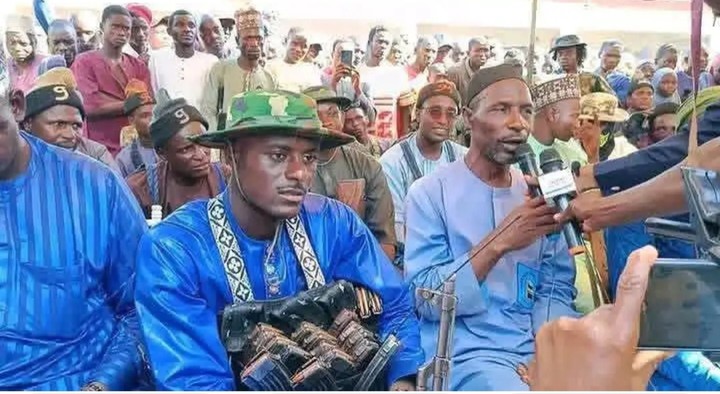
A group of armed bandits in Katsina State have admitted that government actions pushed them into violent crimes, during a peace meeting held on Saturday.
The event took place between community leaders, security officials, and representatives of the bandits from Charanchi and Batagarawa local government areas.
It ended with both sides signing a peace agreement aimed at restoring calm to the troubled region.
During the gathering, one of the bandits spoke openly to residents, claiming that political interests were behind their involvement in violence.
“It was the government that wanted us to engage in banditry, but now it has called us and told us to stop. Therefore, by God’s grace, we have stopped from today,” he said.
He added that those in power have the means to end insecurity but have failed to do so.
“If the government wants all this insecurity to end, they have the power to end it — but they don’t want it to end,” he continued.
According to him, the group had made several attempts in recent months to reach out for peace talks but were ignored until now.
He further insisted that the government holds the key to lasting peace or continued bloodshed.
The bandit spokesman also directed his message to citizens, saying they should not blame the attackers but the authorities responsible for governance.
“You oppressed citizens — if you want to cry, don’t cry with us, the ‘terrorists,’ but cry with your government, for they are the ones who made us do what we have been doing,” he said.
The meeting marked one of several local peace efforts across northern Nigeria, as communities struggle to end years of violence that have led to thousands of deaths and kidnappings.
Meanwhile, Islamic cleric Sheikh Ahmad Gumi again defended bandits, insisting that many of them act out of revenge rather than pure malice.
Speaking in a recent interview, he argued that the Fulani herdsmen and bandit groups had been victims of injustices.
Gumi, known for his controversial stance on negotiations with armed groups, maintained that the attackers were “on revenge missions” and not naturally violent.
He also cited past meetings where officials engaged directly with thousands of armed men in the forests, saying many of them complained about killings and discrimination.
Although he condemned the killings as “wrong and unacceptable,” Gumi urged the government to focus on dialogue, rehabilitation, and unity instead of solely relying on military operations.
The Katsina peace agreement is expected to test whether such local negotiations can bring any real end to years of insecurity in the North West.

your time is up